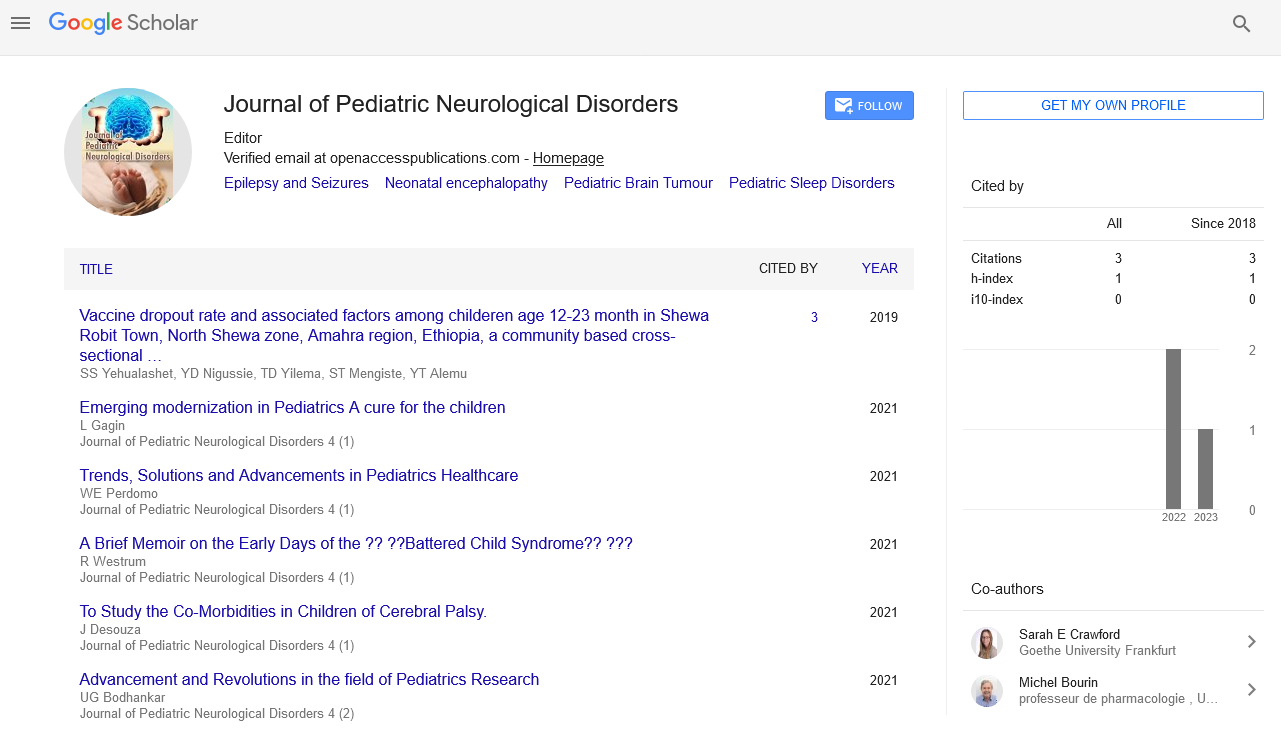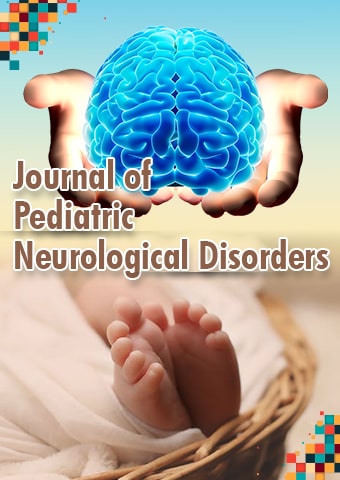Abstract - Journal of Pediatric Neurological Disorders (2021) Volume 4, Issue 3
Does low-glycaemic index diet affect glycaemic control, diet adherence and life quality of type 1 diabetic children and young people?
Mohamed Fatouh
Nottingham university hospitals
Abstract
Background: Nutrition of the children and young people with type 1 diabetes mellitus is considered a major aspect of glycaemic control and it represents a big challenge in their management. Among the different perspectives of nutritive interventions for diabetic children, there has been a debate over the recommendation of low glycaemic index diet for them. There has been debate over the efficacy of Low GI foods on diabetic patients` blood glucose control. Nevertheless, Evidence shows that these foods may positively contribute to the long-term glycaemic control, HbA1C levels, blood glucose variability and postprandial blood glucose levels.
Objective: To review the literature available to establish the relationship between low GI diet and different aspects of type 1 diabetic patients` management; including glycaemic control, diabetic complications, dietary variability and quality of life.
Methods: An electronic search of the database was conducted and included all the studies that assessed the effect of low glycaemic index diets on disease control and quality of life of children and young people with type 1 DM. A summary of the included studies is illustrated in table 1.
Results: The results showed that the low glycaemic index diets were associated with better glycaemic control in terms of significant improvement of HbA1c and post-prandial glucose variability and excursions. Moreover, patients showed better adherence to the dietary instructions. Considering quality of life in diabetic patients, there was some evidence that the LGI diets were associated with better quality of life. However, most of the studies depended on retrospective dietary records which may have shown reporting bias.
Conclusion: Despite the long-standing debate over the effectiveness and applicability of the glycaemic index for management of type 1 diabetic children, evidence showed better glycaemic control, postprandial glucose excursion and improved blood glucose variability with low glycaemic index diets.
Publications
1. Reliability of Nanofluid Concentration on the Heat Transfer Augmentation in Engine Radiator.
2. Study the Effect of Ceiling Air Diffuser Blade and Lip Angles Using CFD.
3. Optimal Design of a Louver Face Ceiling Diffuser Using CFD to Improve Occupant’s Thermal Comfort.
Biography
Mohamed Fatouh, Pediatric Resident at Nottingham university hospitals. He is doing Residency 3rd year in Pediatrics in Nottingham university hospitals. He is also interested in community ophthalmology and has conducted many Pediatric camps in rural areas.

